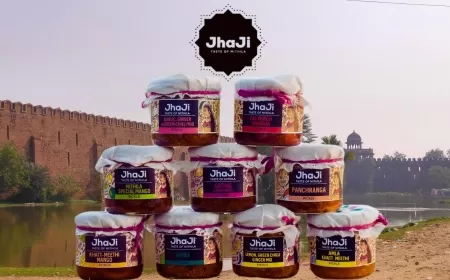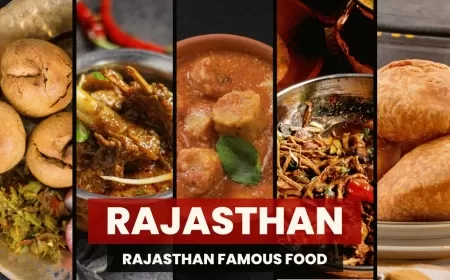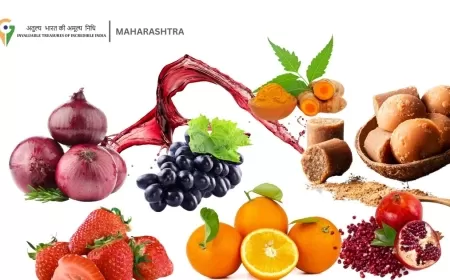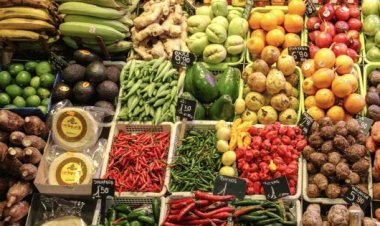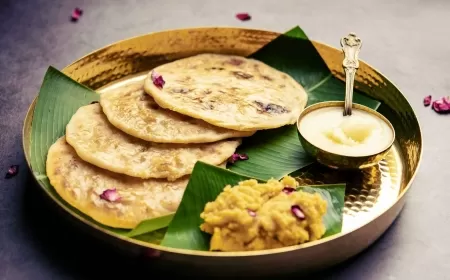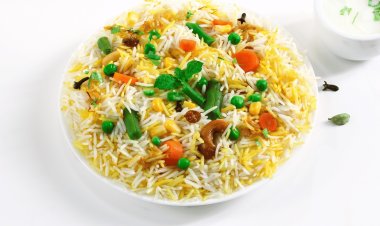Trump Announces New Trade Route Connecting India to the U.S. via Israel: A Game-Changer for Global Trade
Know how the new India-U.S. trade route via Israel, announced by Donald Trump, will revolutionize global trade and boost India’s food industry. Check its benefits for exports, reduced tariffs, and improved supply chains.

In a significant geopolitical and economic move, former U.S. President Donald Trump has announced the establishment of a new international trade route connecting India to the United States via Israel. This corridor, which will pass through the UAE, Saudi Arabia, Jordan, Israel, and Italy before reaching the U.S., is being positioned as a strategic counter to China’s Belt and Road Initiative (BRI).
A New Era of Trade and Diplomacy
The announcement, made during Indian Prime Minister Narendra Modi’s visit to the United States, has been welcomed by allied nations, particularly Israel. Trump emphasized that this trade route will integrate India and Israel with key global markets, enhancing infrastructure through ports, railways, and undersea cables. The initiative, known as the India-Middle East-Europe Economic Corridor (IMEEC), is expected to revolutionize trade, boost economic partnerships, and reinforce diplomatic ties among participating countries.
India’s Commitment to U.S. Trade
As part of the agreement, India is set to increase its imports of oil and natural gas from the U.S., while also reducing tariffs on American goods. This move will not only strengthen economic ties between the two nations but also create new business opportunities for industries, including the food sector, which heavily relies on global imports and exports.
Impact on Indian Food Industry
The IMEEC is expected to have a profound impact on India’s food industry in several ways:
-
Faster and More Cost-Effective Supply Chains
-
The new route will reduce dependence on traditional shipping lanes like the Suez Canal, which has recently faced disruptions due to geopolitical tensions.
-
With a streamlined transport network, Indian food exports, including spices, grains, tea, and processed foods, can reach European and American markets more efficiently.
-
-
Strengthened Agricultural and Food Exports
-
India is a leading exporter of agricultural products, including rice, spices, and seafood. The IMEEC will provide an alternative and reliable trade route, reducing transit times and costs.
-
This will help Indian food businesses expand their footprint in international markets and enhance their competitiveness.
-
-
Increased Import of Premium American Food Products
-
The reduction in tariffs on American goods will make it more affordable for Indian consumers to access premium U.S. food products such as almonds, dairy, and high-quality meats.
-
This will benefit restaurants, food processors, and retailers catering to the growing demand for international cuisine in India.
-
-
Enhanced Investment in Food Infrastructure
-
With an estimated $600 billion in investments planned for IMEEC by 2027, the food logistics sector will see significant improvements.
-
Advanced cold storage facilities and modernized transportation systems will reduce food wastage and improve the quality of perishable exports.
-
Strategic Implications for Global Trade
The IMEEC was originally launched during the G20 summit in Delhi in 2023, with a memorandum of understanding (MoU) signed between India, the U.S., UAE, Saudi Arabia, France, Germany, Italy, and the European Union. However, the project faced delays due to the Gaza conflict. With renewed momentum following Trump’s announcement and a ceasefire in place, the corridor is expected to move forward at an accelerated pace.
This initiative offers India an alternative route to Europe, reducing its reliance on the Suez Canal, where Houthi rebel attacks have recently forced ships to take longer detours around Africa. The eastern corridor of IMEEC will link India with Gulf nations, while the northern corridor will connect the Gulf with Europe. This strategic diversification will enhance trade security and efficiency.
Environmental and Economic Benefits
-
Reduction in Carbon Emissions: The IMEEC is designed to promote sustainability by shortening trade routes, thereby reducing fuel consumption and greenhouse gas emissions.
-
Boost to Maritime Security: Strengthened trade infrastructure will enhance India's maritime security and protect its trade interests in the region.
-
Economic Growth and Job Creation: The expansion of trade infrastructure will generate employment opportunities across various sectors, including logistics, manufacturing, and food processing.
(You can now subscribe to our Indian Food Times WhatsApp channel)
What's Your Reaction?
 Like
0
Like
0
 Dislike
0
Dislike
0
 Love
0
Love
0
 Funny
0
Funny
0
 Angry
0
Angry
0
 Sad
0
Sad
0
 Wow
0
Wow
0














